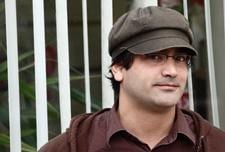Being the political centre of Canada and boasting two universities and several colleges, Ottawa is filled with energetic and skilled young adults who care passionately about this country. And just a stroll through our downtown indicates we’re also a hub for non-profit organizations and charities. The match should be so simple. Most young people want to be meaningfully engaged in making a difference. So why aren’t they?
This is the question Toronto’s Anil Patel encountered when he and a group of socially-minded friends sat around discussing the importance of one’s civic footprint. Having just finished university and starting out in their new careers, they lamented the challenge of finding suitable volunteer opportunities or the funds to make a difference in a meaningful way.
According to Imagine Canada, the top three reasons why Canadians in their 20s and 30s are not currently volunteering are: nobody asks, they don’t have the time, and they don’t know where to find meaningful volunteer opportunities.
It was through those discussions in 2001, that the idea of the Timeraiser began to form, designed specifically to combat these challenges. Run by Patel’s organization, the Framework Foundation, the Timeraiser brings young professionals, local groups and emerging artists together for a classy event that Patel calls, “part volunteer fair, part silent art auction and part night on the town.”
The basic structure of the Timeraiser goes like this: you buy a ticket and attend the Timeraiser, networking with the registered charities to find your niche. Finally you bid, silent-auction-style on the pieces of original artwork that you’d like gracing those empty walls at home. And the currency? Not money, but your discretional time as volunteer hours.
“There’s a lot of moving parts, I do sometimes have to explain it a few times,” laughs Jen Grebeldinger, manager of the Ottawa Timeraiser.
“It is a complex organization. Businesses and corporate donors provide the funds to buy the art. It is obviously important that we are supporting emerging artists. They can’t just keep donating their art for exposure. The $20 ticket is cost-recovery for us, and then everything else — all the hours that are bid — goes to the various organizations. People get to claim their art at the end of the year, once they’re completed their hours.”
It’s an ambitious and imaginative idea that has been highly successful. With 10 Timeraisers under the Framework Foundation’s belt, Patel’s organization has generated more than 40,000 volunteer hours across Canada in only four years.
The first Ottawa Timeraiser takes place Nov 15 at the Canadian War Museum. The 24 local charitable groups involved cover a broad spectrum of need: from health and social services, like the Distress Centre and the Canadian Federation for Sexual Health; to conservation efforts, like Ecology Ottawa; and arts organizations, like the Ottawa Folk Fest.
The AIDS Committee of Ottawa is one of the health and social service organizations that are participating. Volunteer coordinator, Shannon Wilmot and men’s outreach coordinator, Nicholas Little plan to attend the Timeraiser to speak with potential volunteers.
Thinking ahead to the upcoming needs at ACO, Little offers a handful of ideas.
“We always are looking for volunteers to do outreach in gay bars as well as gay men to do outreach in the bathhouses,” Little says. “We also always have receptionists working our front desk, so that would be administrative skills, working the phone lines, directing calls and greeting people when they come in. We have cooks in the kitchen who do meals for the different social groups. They plan the meal out, submit their grocery list and then cook for the event.
“We also have tutors for children like math, English and French. And we often need people for the kit-making blitzes, where we get together to make the condom and lube kits, which we distribute at various events. Off the top of my head, that’s just a few of our needs.”
From his Toronto office Timeraiser’s Anil Patel speaks passionately about the wide range of volunteer opportunities and the desperate need for more help.
“These needs were always there. It’s just that they weren’t accessible or convenient. Finding the right match for volunteering is such a daunting task that people are discouraged from trying. This is like playing match-maker. People can walk about having face-to-face conversations. It’s like speed-dating.”

 Why you can trust Xtra
Why you can trust Xtra


